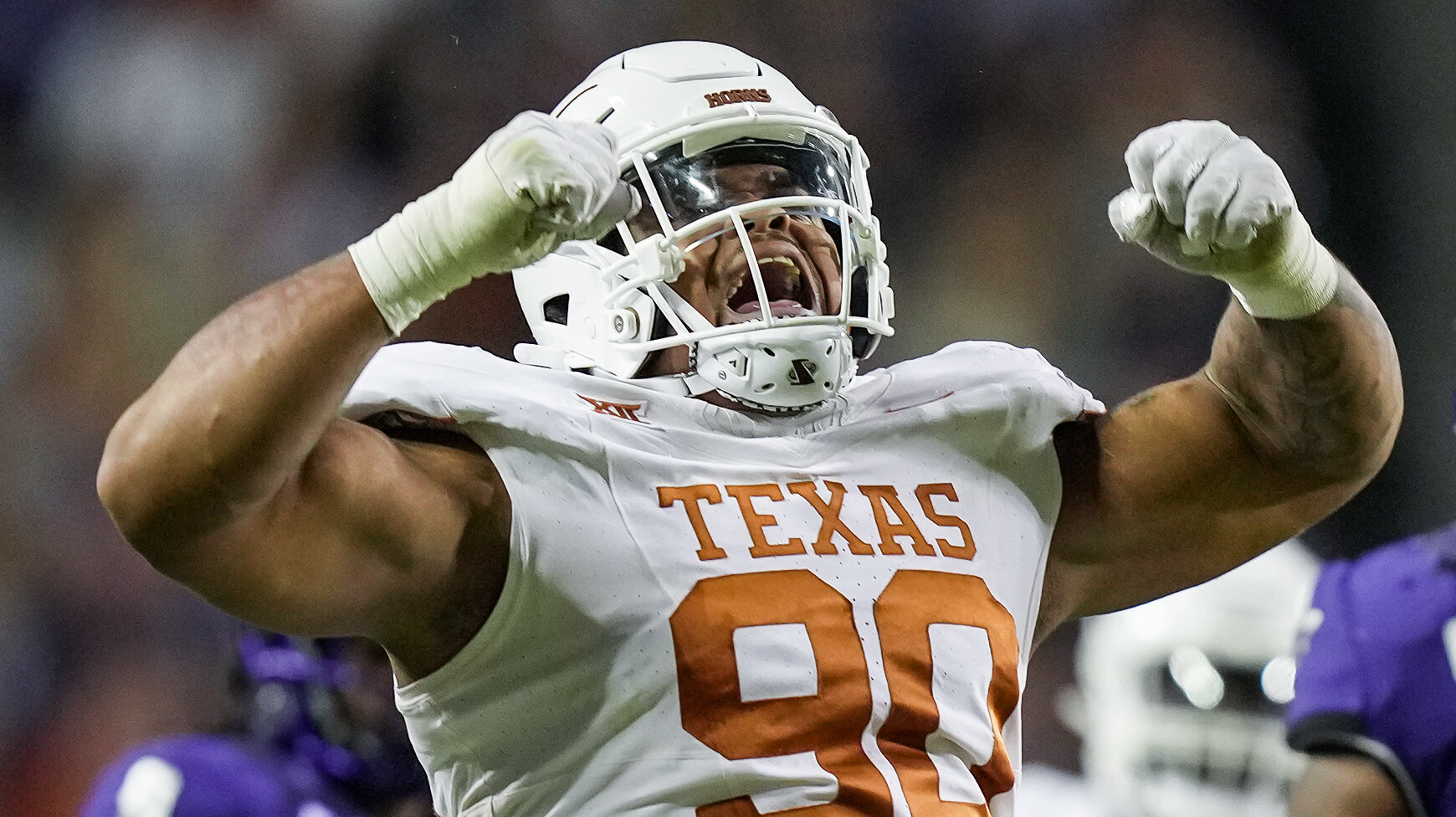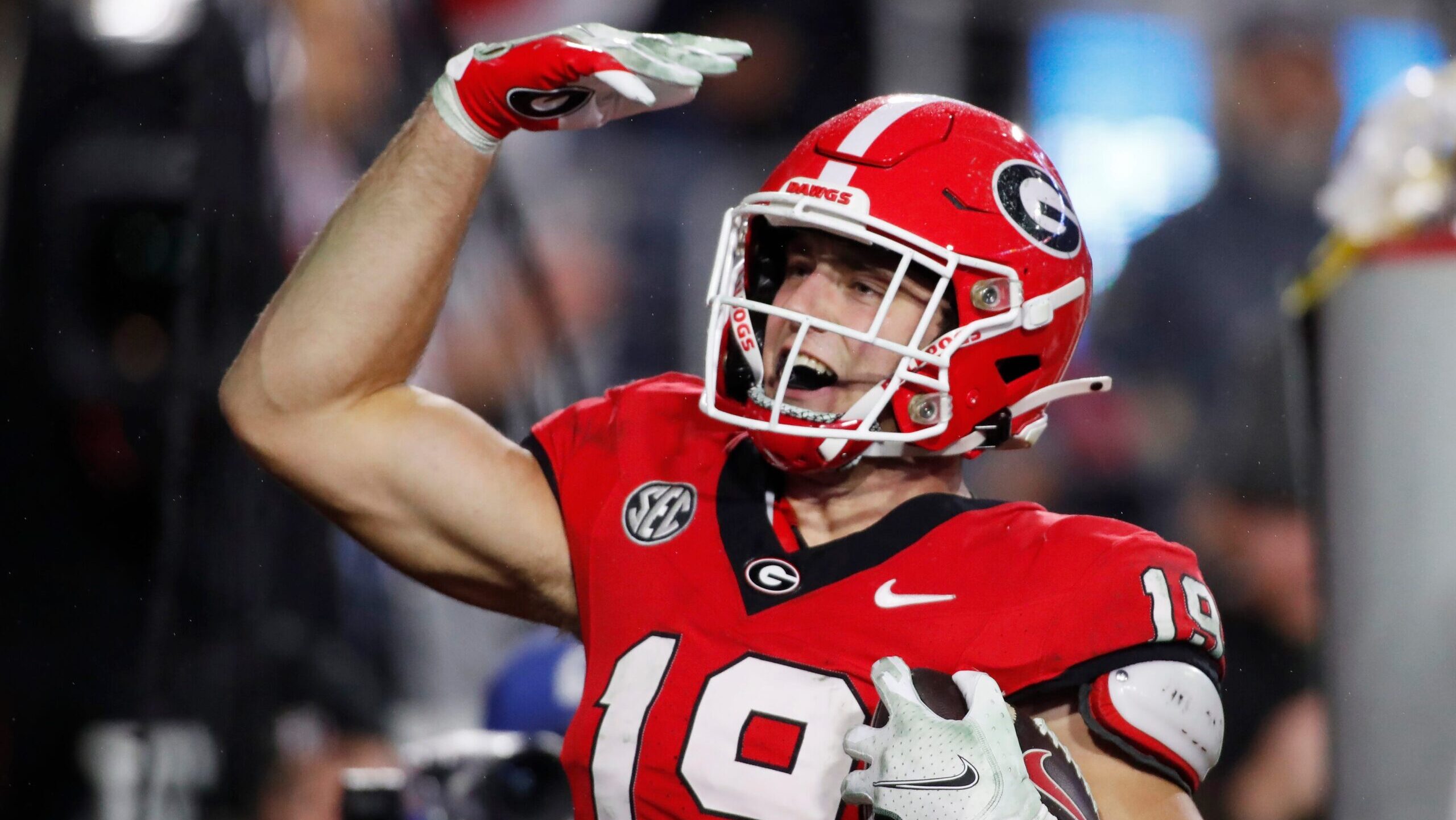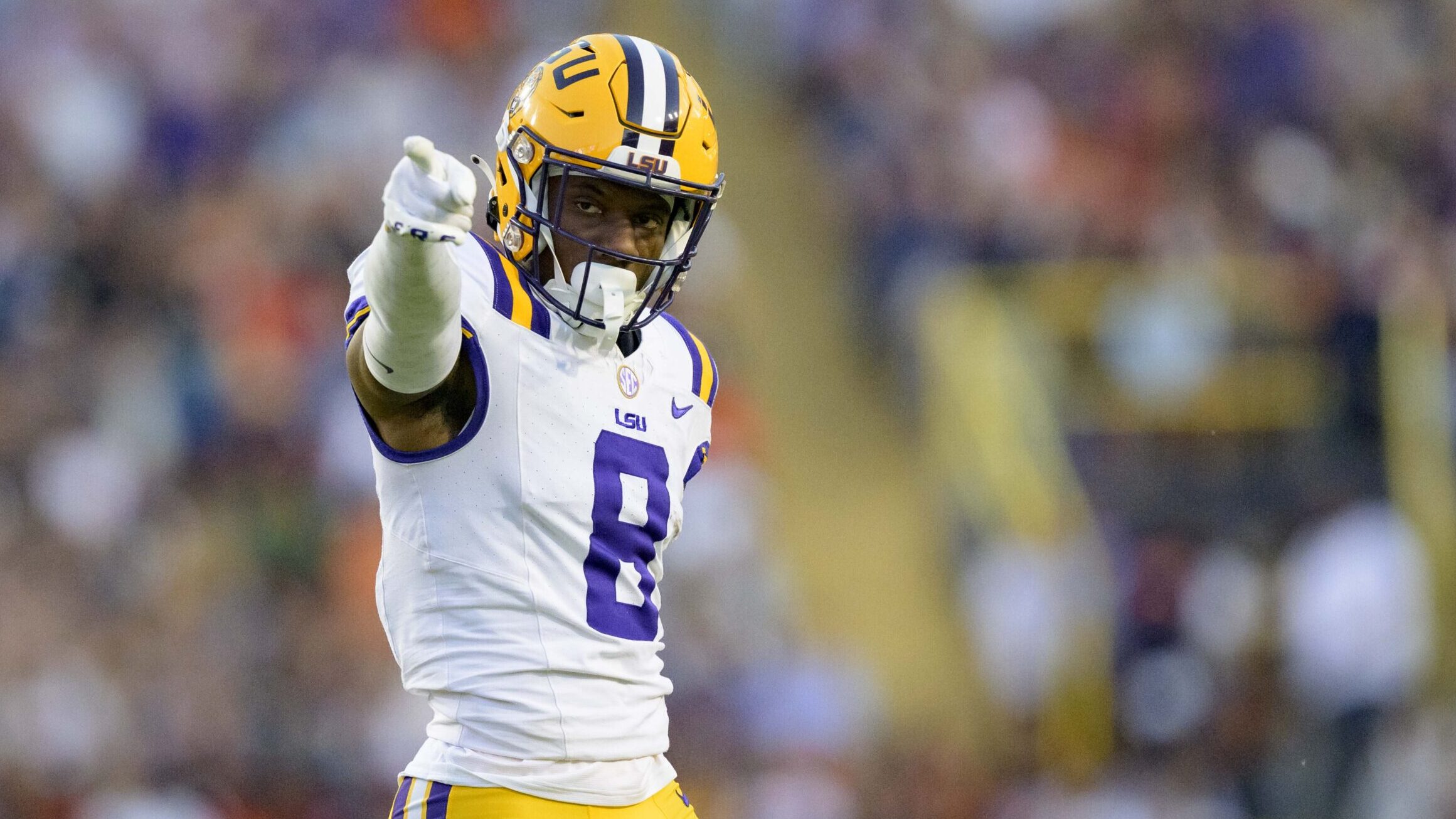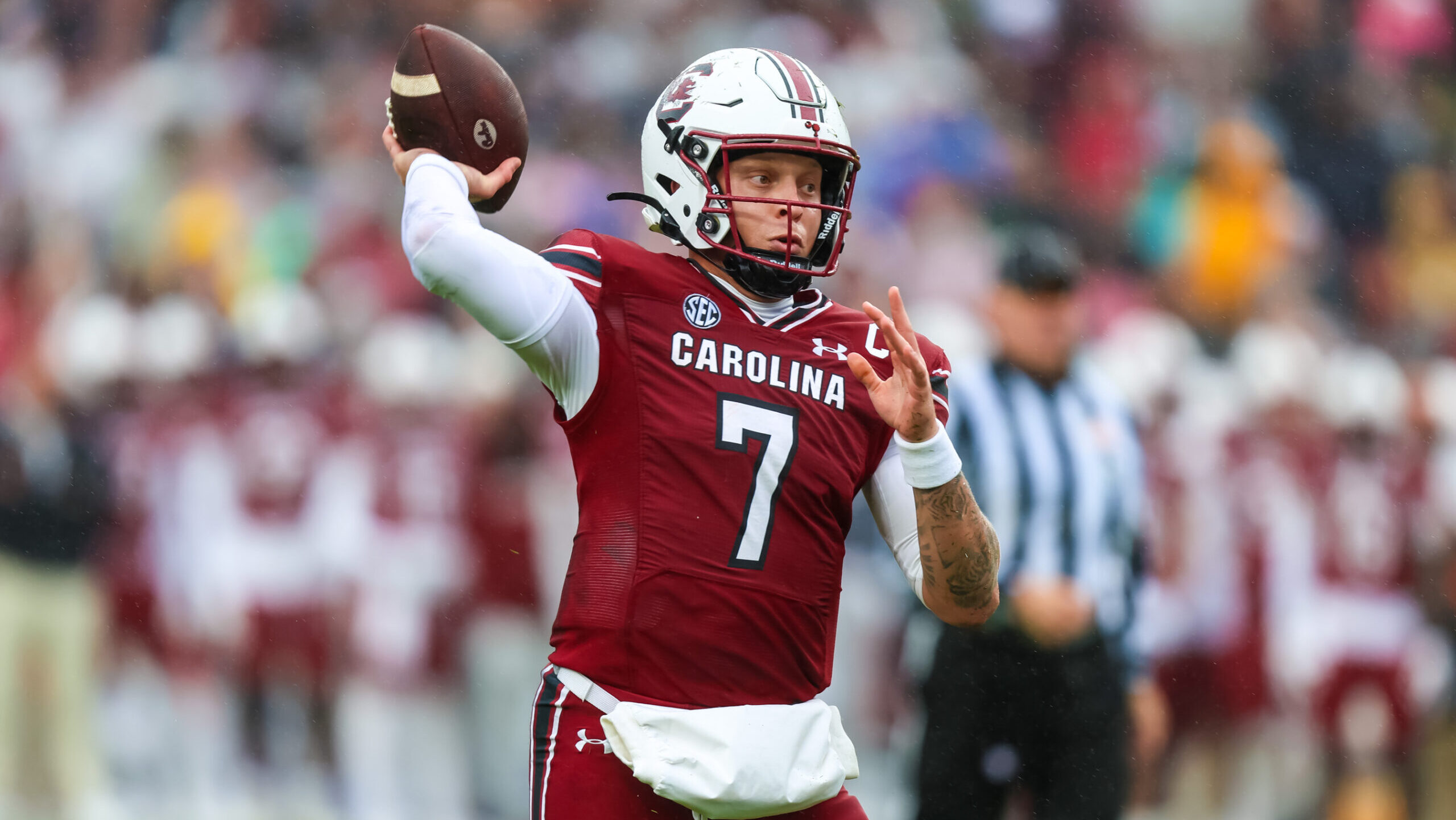Analysis
10/11/22
12 min read
Quick Slants: Analytics Aren't New, Criticizing Them Is
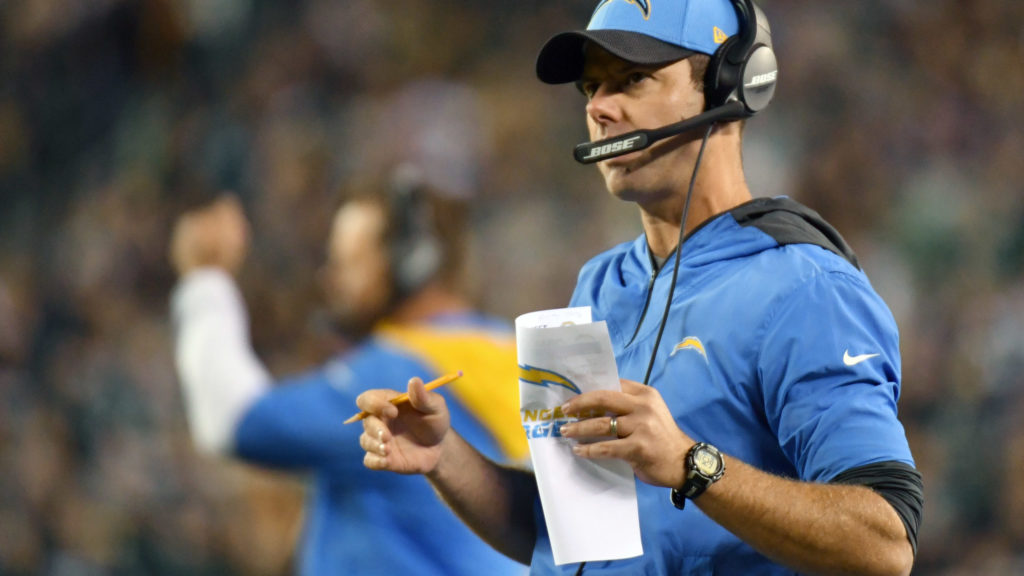
In Quick Slants, former NFL team executive Joe Banner provides a unique perspective each week on the NFL, its players and coaches. This week, he takes on multiple topics, including:
>> The persisting issues with Nathaniel Hackett
>> The continuing Carson Wentz conundrum
>> Kyler Murray's contract impact on the Cardinals
>> Reasons for the Rams' and Bengals' struggles
>> The crossroads the NFL is at with its officials
But first, a look at how coaches have to balance trusting their gut in critical situations versus relying on what the numbers tell them ...
The conversation surrounding whether a coach should trust his gut versus the numbers has become so diluted by the word analytics, which provokes reactions that don't necessarily have anything to do with reality.
It’s really a false choice; you can easily trust your gut and utilize numbers.
First, let's start with the truth. For at least 50 years, teams have been using quality-control coaches as researchers to study opponents’ tendencies. There are offensive, defensive and even special teams assistants whose sole job is to do research. They present probabilities to the head coach so he can make informed decisions during games. It's never been controversial.
But then we attach the word analytics to it, and it starts getting into territories that are a little larger and wider than what quality-control coaches were doing, creating an inability to have objective conversations. Analytics is what quality control coaches have been doing for years in a slightly more complicated way that uses numbers in areas that hadn't necessarily been studied in depth previously. That's all it is.
So, when we talk about a coach's gut, it's the same thing the quality-control coaches have done forever – giving the head coach as much information as possible and letting him make informed decisions on game day. I've said this before: if you have an analytics person who says, “The numbers say 65% one way versus 35% the other” and he thinks it's the end of the discussion, then you need to replace that person. They don't understand the big picture well enough to be good at their job.
There are a lot of great analytics people out there, and they all work really hard and have gone through a lot to get to where they are. But collectively, they are not a group that embraces change quickly. Fifty years ago, the idea of telling a basketball coach his team should be shooting more three-pointers than two-pointers got you labeled as an idiot. Now, every basketball coach in the NBA wants their team to shoot a high percentage of threes. In baseball, when we first started seeing teams employ the shift, people were outraged. Now, all teams do it on almost every play.
Remember, a coach’s job isn't to keep the game interesting for the fan; it's to win the game. So, baseball teams should have been using more shifts long before it took over the game.
It’s been the same with football. At first, it was run the ball, establish the run and use play-action passes after that. Now, we know you don't have to necessarily do it in that order. You can run first if you’d like, but you don't need to.
I wish people would think of analytics more on fourth down — and in other situations where it’s had an impact — as additional information similar to what coaches have used for 50 years. Not wanting all the possible information you can get while you're still free to do whatever you want just doesn't make any sense to me.
We need to start taking a look at these decisions in that context instead of just bashing analytics, something even the most conservative coaches in football have been using for a long time.
What To Make of the Broncos
The Denver Broncos have some smart people in their organization, and they've built a very good roster. But questions still linger regarding their new head coach.
There are a couple of key criteria all winning coaches have in common: attention to detail, organization and having a clear vision of where you're trying to lead people. If you're going to be a leader, people need to know where you're trying to take them, so they can follow in one direction.
What's concerning in Denver are all the poor time-management decisions that are taking place each week. Now, Nathaniel Hackett could grow out of this, but what is worrisome, just five games into is tenure, is his lack of attention to detail and vision for where he's trying to lead the organization.
Hackett doesn't appear to have put together a great coaching staff, outside of first-time defensive coordinator Ejiro Evero, who has been impressive.
If I was a Broncos fan, or if I'm one of the people who hired Hackett, I’d be asking myself if he can grow into the character-related traits — which he seems deficient in right now — or are those fatal weaknesses which will prevent him from succeeding as an NFL head coach?
We need more time to know the answer, but that those questions are being raised so early into his head coaching career should be alarming to the Broncos.
The Carson Conundrum
By Year 3 of a new NFL team administration, there should be a dramatic shift upward if it hadn't happened already in Years 1 and 2. You should certainly be getting talked about as a playoff team and maybe even one with a chance to make a Super Bowl run.
I'm not certain that's what's taking place in Washington.
I had the honor of working with Commanders coach Ron Rivera when he was the linebackers assistant for the Eagles two decades ago. What you hear and see in the media is exactly what you get from him – a really good guy who is principled, honest and transparent. He has a really good heart and cares about people around him. Personally, I root for Rivera to be successful.
I was opposed to the Commanders’ decision to acquire quarterback Carson Wentz for all of the obvious reasons. The Eagles took a massive financial hit — challenging their cap situation for a year or two — because they had made the decision that it was better than continuing with Wentz on their team. Then Indianapolis did the same thing, one year after acquiring him from Philadelphia in a trade. The Colts even made their intentions public before they even had a trade in place. These were not things the media just threw out there without basis nor were they by anyone hyper-critical of the organization. These were real.
Even being as honest as I know him to be, I was surprised on Monday when Rivera made public comments regarding Wentz being part of the problem in Washington. He tried to frame it so it didn't place all of the blame for the team's 1-4 start on Wentz, but by comparing him to Cowboys QB Cooper Rush, who started one game in his career before this season, and Giants QB Daniel Jones, who hasn't played great and is learning a new system, he’s making it known he is unhappy his quarterback's play.
There's no doubt Wentz’s poor performance is a big part of Washington’s problem. I'm not a huge fan of offensive coordinator Scott Turner, who I’ve worked with before, and in this case, he's not a good fit for Wentz. If I were a Commanders fan watching what's going on and listening to Rivera's words on Monday, I'd be concerned about not just the short term, but the longterm prognosis for this team.
The Commanders don't have another quarterback option viewed as a longterm solution. That's where it all starts. If you don't have that, you're swimming upstream and you're limited as to how far you can go.
Regardless, I appreciate the honesty and transparency from Rivera.
Is Murray Holding Cardinals Back?
I can tell you firsthand from running a team, it's hard to succeed if you pay a mediocre quarterback like he's a top-tier player. You have guaranteed yourself mediocrity as your ceiling.
The Arizona Cardinals took Kyler Murray and made him one of the top-three highest-paid quarterbacks in the league. Murray has talent. There’s no doubt about it. He has speed, tremendous running ability and throws the ball well. But he's not significantly making up for the rest of the roster's shortcomings as the highest-paid quarterback in the league (at the time he signed) should.
Paying a quarterback that much money creates weaknesses elsewhere. When you give out that much money to a quarterback, you're saying, "This guy is so good he can make up for some of our weaknesses, and we're still going to be great." If the quarterback can't make up for those cap-induced sacrifices, then it's going to be difficult to be anything other than mediocre.
We saw that in the Eagles game on Sunday. Murray was in position to win the game late. He had played well for most of the game, and then made some big mistakes at the end. Not only the early slide on second down and the spike blunder that followed in the final minute of play, but he also missed a couple of wide-open passes earlier in the fourth quarter. In a game where both teams played subpar, the Cardinals ended up losing because of Murray's mistakes.
This is not a problem they can solve overnight. Kliff Kingsbury and his staff have to find a way to make Murray better, and the team has to also start hitting on an unusually high percentage of draft picks to get itself back to competing in the division, let alone the entire NFC.
Why Super Bowl Teams Are Struggling
To be a successful team in the NFL, you've got to dominate both the offensive and defensive lines against other good teams.
The Rams' offensive line played well last year, but they made a number of changes in the offseason and have had some bad injury luck. They're playing with an incredibly weak offensive line right now. As a result, Matthew Stafford is really struggling. Same for Russell Wilson in Denver. It's not that those two quarterbacks are changing. If you take a good quarterback and put him behind a bad offensive line, his production level is going to fall off a cliff.
Take a look at the two Super Bowl participants from last year. The Bengals and Rams, who have given up a combined 40 sacks this season, implemented opposing strategies to address their offensive lines in the offseason. Cincinnati made its Super Bowl run despite a weak O-line, and the Rams were decimated with retirements, free-agent departures and injuries. I don't think the Bengals got the talent evaluation part right in their offseason moves, but that’s a story for another time.
This is what separates winning teams from losing teams. Watch the ones who are struggling on offense with good rosters, smart coaches and good quarterbacks. Almost every time, they struggle because they don't have a good offensive line and got fooled into thinking they can make up for it with their skill-position players, or a quarterback who can get the ball out quickly, or a new line coach who will make the players better.
It's not never, but it's rare when a good team overcomes a weak offensive line to still be competing at the end of the season. That's what we're seeing with those teams right now.
Officiating Rears Ugly Head Again
When I was with the Eagles, we tried not to focus on officiating because it can easily become an excuse. The NFL is correcting in saying that blown calls balance themselves out over time.
But you'd really like to have consistency, and we did not see that in Week 5.
On Sunday, with three minutes left in the first half of the Chargers-Browns game, there was a roughing-the-passer call I thought was even more egregious than the one on Tom Brady that received all the national attention. Chargers DT Sebastian Joseph-Day lightly pushed QB Jacoby Brissett, which drew a roughing penalty on third down, putting the ball at the 2-yard line. The flag turned a field goal into a touchdown and could have potentially decided the game.
Give Jacoby Brissett an Oscar for this onepic.twitter.com/uIvr35fxFg
— Action Network (@ActionNetworkHQ) October 9, 2022
There are a lot of tough calls that could go either way, and you want to be objective and sympathetic to the officials, but I feel as if we're still getting many of those black-and-white calls wrong. Some of them are even getting upheld when they're challenged.
I don't want to be overly critical of the officials because over time, it generally balances itself out. Most of the time, the officials don't decide the outcome of a game. I just hate to see the obvious calls impact games.
In Tampa, the Falcons had a chance to come from behind and win, and similarly, the Browns game was significantly impacted by that bogus call. These aren't nuanced interference calls where the defender hits the receiver a split-second early. These are blatant and they need to get them right.


